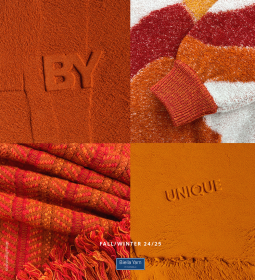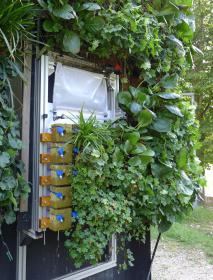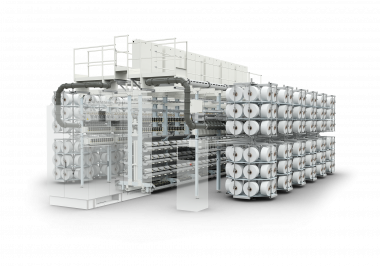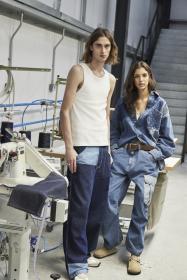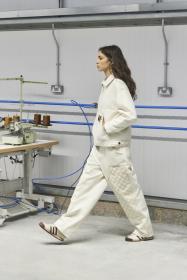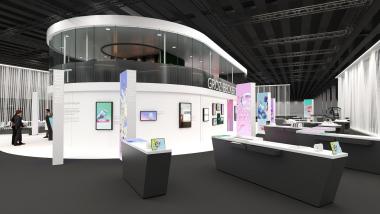Yarn made with Naia™ fibers standing for sustainability and style
The priority of sweater manufacturers has always been to select ingredients and fibers that are soft, hypoallergenic, and of the finest quality to meet consumer expectations that their sweaters are comfortable yet durable and easy to care for. According to the recent Eastman consumer study of sweater lovers, the sweaters consumers want to add to their wardrobes are soft, comfortable, stylish, and versatile. However, consumers are very disappointed when their sweaters look and feel differently after wearing and washing. Choosing fibers and materials that deliver comfort, quality and ease of care is essential to win with consumers. Today, these are compounded by the ever-present consumer demand for a sustainable paradigm. The promise of Naia™ from Eastman is exactly to make sustainable style accessible to brands and inclusive for everyone through a portfolio of fibers that doesn’t compromise on quality, comfort, or garment care.
The results of soft and cozy blends between the versatile Naia™ fibers and other materials can be appreciated in the collections of Naadam and The Gap, which this year presented its third collection of men's sweaters blended with Naia™ and cotton. By using Naia™ blended knits in their collections, brands are not just choosing a sustainable ingredient, but also a certified and circular supply chain: all Naia™ cellulosic fiber is produced in a safe, closed-loop process where solvents are recycled back into the system for reuse. Eastman Naia™ partners with Textiles Genesis to provide track and trace solutions for brands. All Naia™ fibers are OEKO-TEX™ STANDARD 100 certified, ensuring no use of hazardous chemicals, and certified by TÜV AUSTRIA as biodegradable and compostable, also in the ocean, as supported by a recently published ocean degradation study conducted by Woods Hole Oceanographic Institution (WHOI).
Naia™ fibers are designed to create unlimited possibilities for uncompromising, sustainable style: among these, Naia™ Renew staple fiber permits to create eco-conscious blends that are supremely soft, quick-drying and consistently reduce pilling which are ideal for T-shirts, casual wear, sweaters, comfy pants and home textiles. Produced from 60% sustainably sourced wood pulp and 40% certified* recycled waste materials, Naia™ Renew creates the same top-quality fabrics as traditional Naia™ fibers, but with a reduced carbon footprint of around 35% — and it’s available at scale. The innovative cellulosic acetate materials can be blended with cotton, modal, merino wool, recycled polyester, or multiple content fancy yarns. Naia™ blended yarns deliver super softness for supreme wearing comfort in knitwear, and sweaters made with Naia™ Renew can have good dimensional stability and shape retention even after multiple washes. Versatile Naia™ denier sizes can be used in different yarn spinning processes, giving the yarn spinners freedom of creativity for trendy yarn designs perfect for year-round basic sweaters with good quality and a durable look. The unique cross section of Naia™ staple fibers enables designs that accommodate four seasons of wearing comfort.







